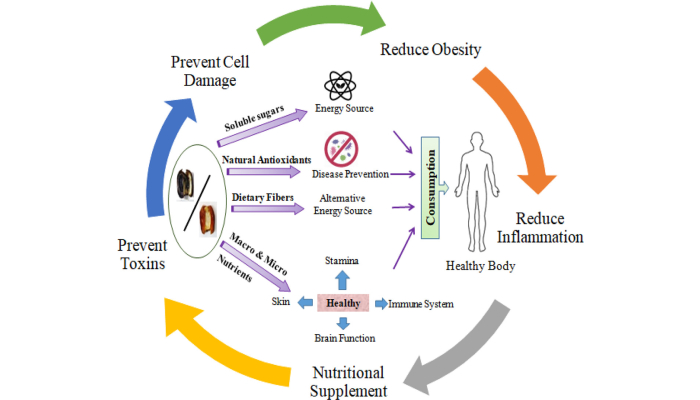
Muscat: A study at Sultan Qaboos University (SQU) revealed that Omani dates can be adopted as part of organic and medicinal diets and be used for various by-products irrespective of their market value.
The study titled “Potential of dates as natural antioxidant source and functional food for healthy diet” investigated the physical traits, antioxidant properties, carbohydrates and nutritional values of Umsellah and Khalas dates to identify their nutritional functionality.
According to the study, both varieties are rich in stable organics like carbohydrates and dietary fibres, with a high composition of antioxidants and phytochemicals known for medicinal applicability. The optimum presence of nutrients establishes dates as a balanced and valuable element of healthy diets. The researchers said, “Date fruits are well known for their taste and concentrated nutritional components. They can well be adopted for the production of dates by products, healthier food supplements and more.”
The study results showed that the total phenolic content in Umsellah was 62 per cent higher than in Khalas, at 164.22 mg/100 g and 103.85 mg/100 g respectively. Among antioxidants, gallic acid in both Umsellah and Khalas were 35.77 mg/100 g and 27.41 mg/100 g respectively. Umsellah has 50 per cent more caffeic and syringic acid compared to Khalas. The p-coumaric acid content in Umsellah and Khalas were 24.94 mg/100 g and 21.69 mg/100 g respectively. Total sugar in Umsellah (51.37 g of glucose equivalent /100 g of dates) was found to be higher than in Khalas (44.78 g of glucose equivalent / 100 g of dates).
For nutrients, both varieties show an optimum range for all except Potassium, the levels of which are very high (> 450 mg/100 g). For dietary fibres, Umsellah (81.17 g/100 g) reported a higher proportion than Khalas (67.35 g/100 g).
Overall findings suggest that Umsellah contains a greater amount of beneficial individual phenolic and sugar compounds for the nourishment of health than Khalas does.